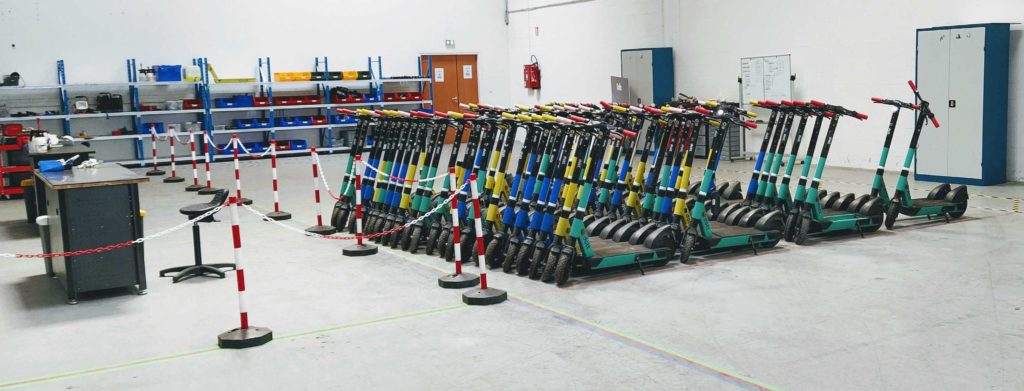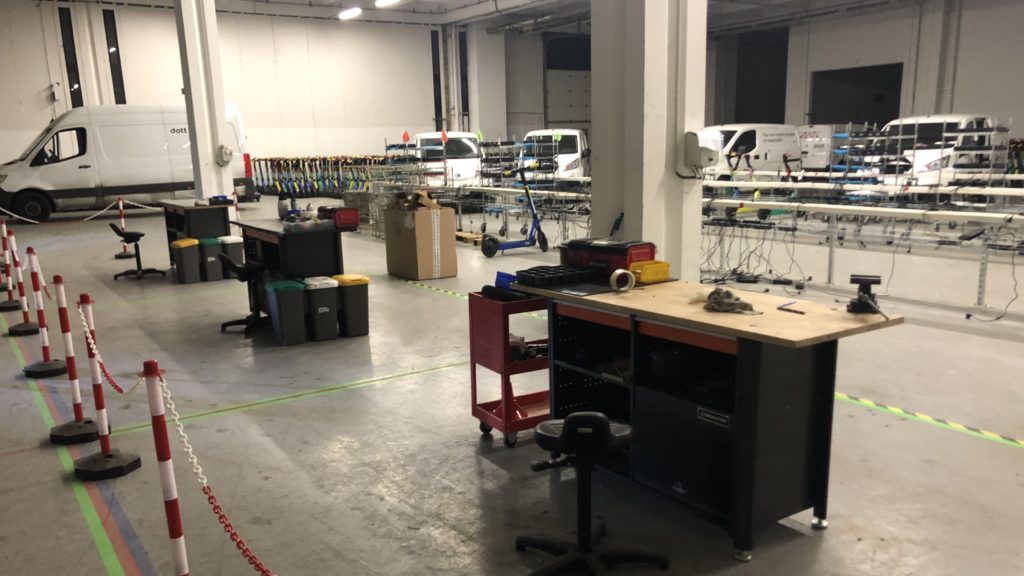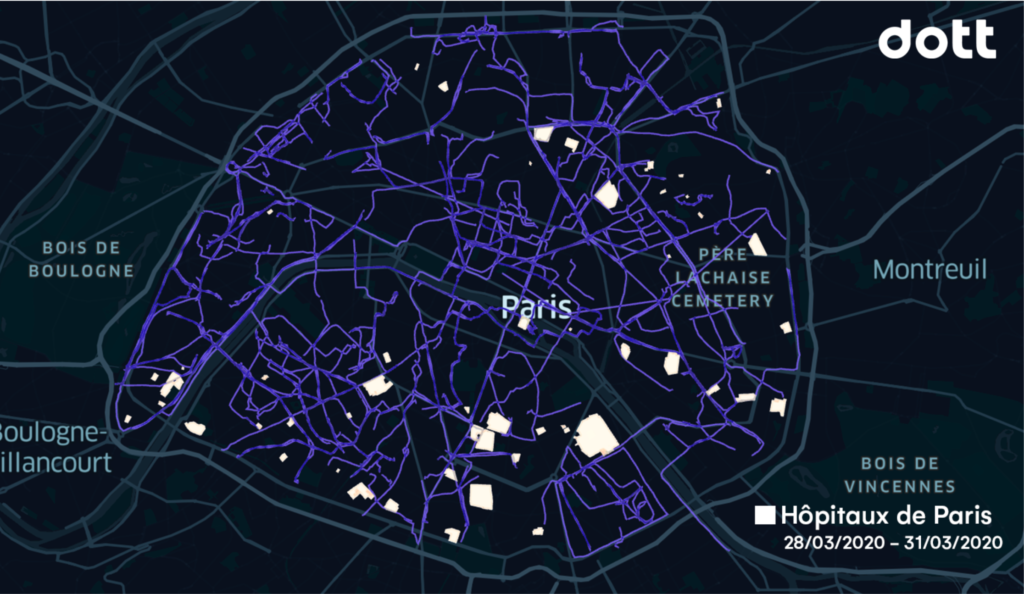General
Operating during the COVID-19 lockdown: Dott in France
9 April, 2020
A few shared micromobility operators chose to maintain a limited-service during the COVID-19 crisis: when public transport in major cities is not the safest mean of transportation, other shared transport options are an absolute necessity to allow healthcare/grocery store/delivery… workers to maintain vital services.
Dott is still operating its e-scooter fleets in all the cities it was operating in: Brussels and Liege in Belgium, Paris and Lyon in France, Augsburg, Bonn, Cologne and Munich in Germany, and Turin in Italy. The company chose to maintain service despite the negative impact on the company’s bank account to contribute to the (inter)national effort by offering a limited-service.
For Nicolas Gorse, GM France, “adapting to this exceptional situation is a way to grow up, and to be stronger in front of future upheavals”. Indeed, changes have to be made at all stages of the operation process to offer an e-scooter service during the COVID-19 crisis…
Staff and processes adaptation
Dott is currently operating 1090 e-scooters in Paris and 790 in Lyon, half of its nominal fleet size. The company had to resize its operation staff consequently: temporary workers have been laid off, while for the permanent ones 32% are on short-time working, 27% are on sick or parental leave and 40% are working full time.
Because of the low usage rate, Dott chose to stop its mechanical workshop: all the damaged scooters are now replaced by a new one. Not a problem as the damage and vandalism rates plummeted with the lockdown!

The staff is therefore focused on balancing, battery swap and disinfection. Planning sequencing allows workers not to walk into each other: one at a time at the warehouse in addition to the warehouse manager, one driver only in the electric vans to swap the batteries, drop or pick up the scooters… And each member of the staff, of course, wears a mask and disposable gloves.

Patrollers (5 in Paris, 3 in Lyon) and drivers are disinfecting each scooter they come across on their way to the next task. As the battery swap occurs every 10 trips or every 4 days on average, that gives you the minimal disinfection frequency. Every maintenance or balancing action also finishes with disinfection.
Partnerships
Dott goal in maintaining the service is mainly to allow workers from essential businesses and services to get to work safely. The company offers free rides for all healthcare workers with citywide partnerships with APHP (Assistance Publique -Hôpitaux de Paris / 20 hospitals) and HCL (Hospices Civils de Lyon / 13 hospitals). Dott also launched a specific geofenced zone to allow workers from the Lyon Sud hospital to ride. After 3 weeks, the number of rides from or to hospitals rose by 120%.
For grocery stores, public services… workers, Dott offers a 50% discount upon agreement with the employers. La Vie Claire and Carrefour have already signed in, as well as independent shops (which can apply online).
Riding stats in Paris and Lyon
Is there any point to operate under these circumstances? Let’s have a look at the statistics.
There are around 700 daily trips on weekdays (500 on weekends) both in Paris and Lyon. That makes 0.64 trip/scooter/day in Paris, 0.88 trip/scooter/day in Lyon, numbers that are far from the profitability limit usually set at 4 rides/scooter/day.
We can also highlight changes in the mobility patterns:
- Around 30% of the riders, or 3 times more than usual, are regular ones (more than 4 trips/week)
- Median trip length raised by 15% to 3.1km, meaning that e-scooter are more used as a full trip solution.
Interestingly, the heatmaps reveal that trips doesn’t only occur to or from hospitals, but still cover all the cities. Despite the lockdown, users are still using the service to go to the grocery store or pharmacy. Recreational users are scarce as you are just a great police control target when riding an e-scooter!

Impacts on the company
With a low ridership and high discount rates, the rides revenue dropped by 90%. The financial consequences are therefore important for Dott even if “the company has sufficient funds to live until the end of 2021”, says Nicolas Gorse.
The impact is also important on the staff, with the end of temporary contracts and short-time working. It’s is not only affecting the operation staff but also the headquarters, where all the staff is on 50% short-time working.
But the choice to maintain the service is a long term bet for Dott. In the middle of Paris tender process (which result has been postponed to June 2020), it is an opportunity for Dott to prove its unique company values around social responsibility: taking care of its workers and users shows it to the cities and to its competitors. If the company have the financial stamina to go through it, it surely is a good bet.
Bonjour ! Merci beaucoup pour cet article éclairant ! Concernant les “temporary workers”, savez-vous s’il s’agit de travailleurs en interim ou en CDD ? Merci ! Bien à vous, Anna
What is your source for the data? For example, for fleet size, revenue decline, trips per day, and not repairing scooters.